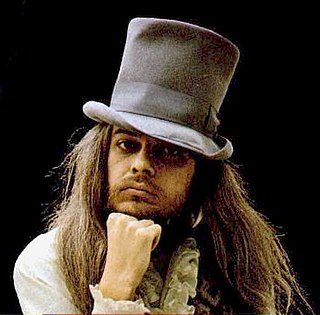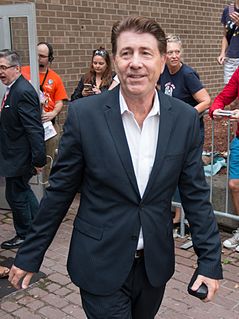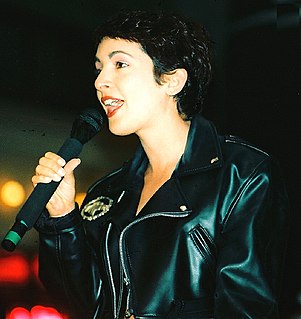A Quote by Malcolm Gladwell
I don't go to an office, so I write at home. I like to write in the morning, if possible; that's when my mind is freshest. I might write for a couple of hours, and then I head out to have lunch and read the paper. Then I write for a little bit longer if I can, then probably go to the library or make some phone calls. Every day is a little bit different. I'm not highly routinized, so I spend a lot of time wandering around New York City with my laptop in my bag, wondering where I'm going to end up next. It's a fairly idyllic life for someone who likes writing.
Quote Topics
Around
Bag
Bit
Calls
City
Couple
Day
Different
End
Every
Every Day
Fairly
Go
Going
Head
Highly
Home
Hours
Idyllic
Laptop
Library
Life
Like
Likes
Little
Little Bit
Longer
Lot
Lunch
Make
Might
Mind
Morning
New
New York
New York City
Next
Office
Out
Paper
Phone
Phone Call
Phone Calls
Possible
Read
Some
Someone
Spend
Then
Time
Up
Wandering
Wandering Around
Wondering
Write
Writing
York
Related Quotes
Curiously, the balance seems to come when writing is woven into every aspect of my life, like eating or exercising - one flows constantly into the next: I'll wake up and have coffee, read the news, then write a letter or two (always in longhand), then go teach, and after teaching write a bit in a journal - dreams, what I had for breakfast and lunch and why I had it, what's on the iPod, sexual habits, etc. - then read a bit, then work on a real bit of writing...you get the idea.
A typical workday for me is getting up at about 5:00, 5:15 in the morning, getting some coffee or tea as quickly as possible, and then getting to my desk. And ideally, I'll start writing around 5:30, 5:45, and I'll write for three, four hours, and then I'll take a break, and read over what I write. Maybe about lunchtime, I'll go exercise or get out into the day. Then I'll either read over what I wrote the day before and quit work around 3:00 or 4:00 in the afternoon and spend some time with my kids.
I'll generally write out every scene that's in the film on a couple of pieces of paper, just with a little one-line. And then I can scan it a bit and go, 'This first third of the film, generally, I'm kind of calm.' Then I might do something on one piece of paper that just relates to the energy of the character.
I don't write as much now as I used to, but I write. The lines still come, maybe periodically, and I'll go through these little bursts of time where I write a lot of things then a long period of time where maybe I don't write anything. Or these lines will come into my head and I'll write 'em down in a little book, just little sets of lines, but I won't try to make stories or poems out of them. I'm doing a lot of that now, just the lines.
I've written arrangements for choirs and strings in the past, but I usually write music with my voice or a keyboard and then I'll get someone who is good at writing scores to write it out. Or, if I have the luxury of time, I will go in a room and hear the people perform and then change it through what I hear, not on paper. I can read music OK, but I probably rebelled a little - music changes into something else when you read it.
I try to write every day, preferably first thing in the morning. Of course, there are days when something happens to interfere with this ideal schedule. Then I try to find time later in the day. I usually work at home, but sometimes, for a change I'll go to a library or a cafe. And I like to read poetry before I sit down to write.
I turn sentences around. That's my life. I write a sentence and then I turn it around. Then I look at it and I turn it around again. Then I have lunch. Then I come back in and write another sentence. Then I have tea and turn the new sentence around. Then I read the two sentences over and turn them both around. Then I lie down on my sofa and think. Then I get up and throw them out and start from the beginning.
I did always want to write. And then, when I left New York, where I was working very steadily in the theater - I had done three Broadway shows in a row and was a bit burnt out - I moved out to L.A. and I was not working very much. I came in cold and I'd work for a week, but then I'd have a month or two off. I thought, "I'm going to go crazy unless I actually do write." Like a lot of things in life, it was a situation that came about by circumstances.
It's not possible to advise a young writer because every young writer is so different. You might say, "Read," but a writer can read too much and be paralyzed. Or, "Don't read, don't think, just write," and the result could be a mountain of drivel. If you're going to be a writer you'll probably take a lot of wrong turns and then one day just end up writing something you have to write, then getting it better and better just because you want it to be better, and even when you get old and think, "There must be something else people do," you won't be able to quit.

































